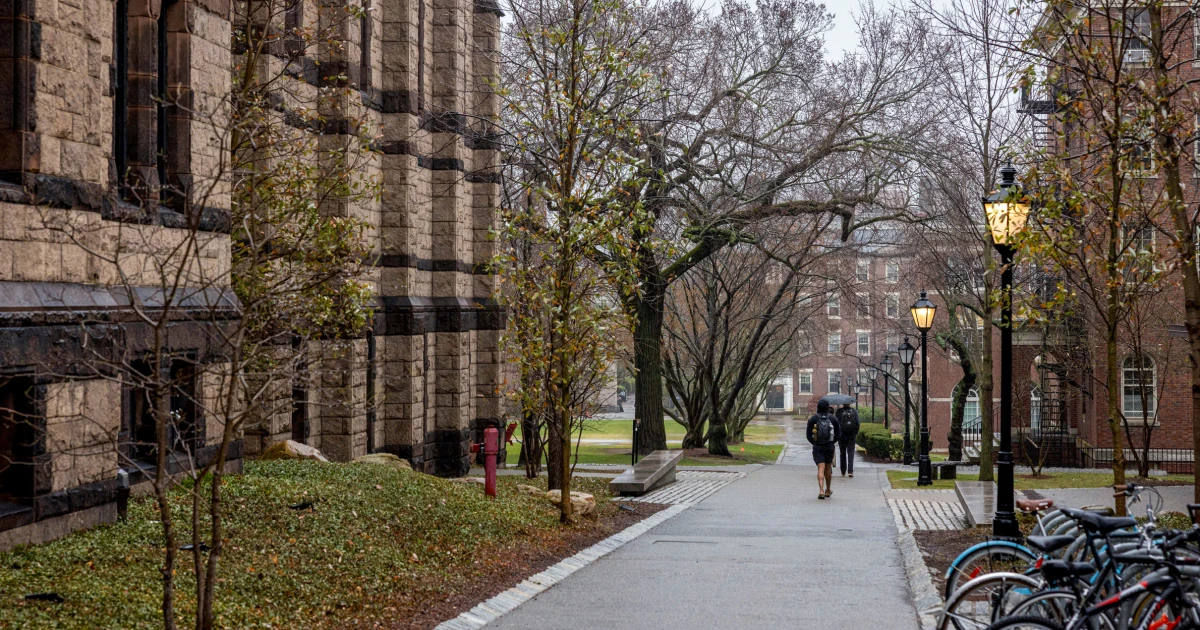
The White House has laid out a proposal to nine top U.S. colleges and universities, offering them preferential access to federal funds in exchange for agreeing to a set of demands.
In a memo delivered this week and sent to NBC News by a White House official, the Trump administration asked schools, including several Ivy League institutions, to agree to parameters such as barring transgender people from using restrooms or playing in sports that align with their gender identities and placing a cap on international student undergraduate enrollment, among other conditions.
Additionally, signatories are required to freeze tuition rates charged to American students for the next five years.
Schools that adopt the agreement are promised a number of benefits, including priority treatment for grants.
“By signing the compact, universities receive a competitive advantage,” a White House official said in a statement about the memo. “The Administration does not plan to limit federal funding solely to schools that sign the compact, but they would be given priority for grants when possible as well as invitations for White House events and discussions with officials.”
The nine recipients of the memo were Vanderbilt University, the University of Pennsylvania, Dartmouth College, the University of Southern California, Massachusetts Institute of Technology, University of Texas, University of Arizona, Brown University and the University of Virginia.
Among the requirements listed in the document, titled “Compact for Academic Excellence in Higher Education,” the administration required a ban on the consideration of race, sex or gender identity in admissions and financial support. It also calls for banning the consideration of these factors in faculty hiring, too.
Schools that sign on to the agreement are also prohibited from having any more than 15% of the undergraduate population be international students, the memo said. There’s also a requirement for the universities to prioritize merit and share “all known information” about international students upon request to the Department of Homeland Security and the State Department.
“Signatories pledge to select those foreign students on the basis of demonstrably extraordinary talent, rather than on the basis of financial advantage to the university; to screen out students who demonstrate hostility to the United States, its allies, or its values; and to provide instruction in American civics to all foreign students,” the memo said.
The schools are also asked to eradicate any campus institutions that might “punish, belittle, and even spark violence against conservative ideas.”
Schools that sign into the agreement but then violate the terms will lose preferential treatment for at least a year, and any funding provided to the schools by the government during the year of violation will be returned. Private contributions will also be returned at the grantor’s request.
News of the memo comes after months of clashes between the Trump administration and a number of universities over federal funding, accusations of antisemitism related to campus protests around the war in Gaza and over concepts of ideological diversity.
In its ongoing back-and-forth with Harvard University, the government recently moved to debar the school, potentially excluding it from accessing billions in federal funds. If the administration gets its way, Harvard would be deemed not responsible enough to do business with the government “because of its wrongdoing,” according to a press release from the Department of Health and Human Services.
Columbia and Brown universities have made deals with the administration to restore federal funding that had been frozen. In Columbia’s case, the school agreed to pay $200 million along with the establishment of a “jointly selected independent monitor.”
The monitor is expected to provide reports about the school’s compliance with federal laws and regulations related to admissions, hiring and international students. Meanwhile, Brown will pay $50 million in grants over 10 years to workforce development organizations in Rhode Island, where the school is located.



